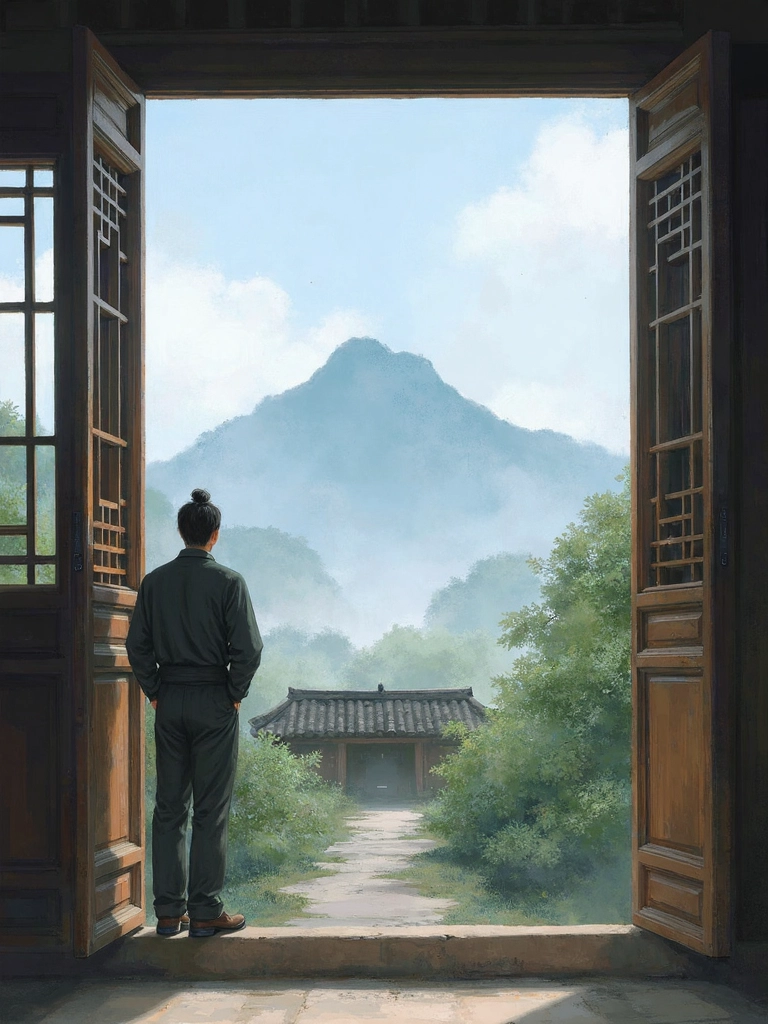开门见山

Idiom Story — 开门见山
To be honest, I wasn’t quite sure how to begin my story here. In here, many Chinese learners — some out of personal interest, others for professional reasons. Whatever the motivation, the fact that we’re all here together feels like a kind of fate.
So let me cut to the chase — or, as we say in Chinese, let me 开门见山 (kāi mén jiàn shān).
What I want to do is create a series that introduces the origins and stories behind Chinese idioms (成语 chéngyǔ), in English. Idioms are a fascinating and essential part of the Chinese language, and I believe learning them can help non-native speakers better understand not just the language, but also the culture behind it.
Since I’ve already mentioned 开门见山, let’s start with this idiom for our very first story.
Meaning and Origin
The phrase 开门见山 (kāi mén jiàn shān) literally means “open the door and see the mountain.” It first appeared in the Canglang Poetry Talks (沧浪诗话) by Yan Yu during the Southern Song Dynasty. He used it to praise the poetry of the Tang Dynasty poet Li Bai, who was known for opening his poems with bold, direct imagery that immediately captured the reader’s attention — just like opening a door and seeing a towering mountain right in front of you.
Originally a metaphor in literary criticism, the phrase gradually found its way into everyday language. Today, it’s a common idiom used to describe speech or writing that gets straight to the point without any unnecessary buildup.
Recap
- Idiom: 开门见山
- Pinyin: kāi mén jiàn shān
- Literal meaning: Open the door and see the mountain
- Figurative meaning: To get straight to the point; to cut to the chase; to speak or write in a direct and straightforward way
Everything begins in unexpected ways, and perhaps my writing isn’t perfect — but I hope it can be helpful to those who need it.
Introduction of Related Figures
- Yan Yu (严羽): A famous literary theorist and critic in ancient China during the Southern Song Dynasty. He is best known for his work Canglang Shihua (《沧浪诗话》), a collection of essays on poetry criticism. Yan Yu is regarded as one of the founders of Chinese literary criticism, especially noted for emphasizing the importance of artistic conception and expression in poetry.
- Li Bai (李白): Styled Taibai and known by his pen name Qinglian Jushi, Li Bai was a famous poet of the Tang Dynasty in China. He is celebrated for his extraordinary talent and his free-spirited, romantic style. His works often express his love for nature, the joys of wine, and his desire for freedom and transcendence. Li Bai’s poetry remains one of the greatest treasures of Chinese literature.